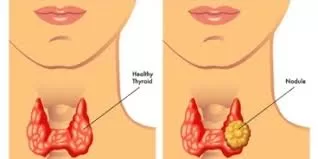Highlighting the critical need for increased awareness about the importance of thyroid testing in infants, pregnant women, and those planning pregnancy, experts emphasized on World Thyroid Day that women are particularly at risk, with one in eight susceptible to developing a thyroid disorder in their lifetime.
Observed annually on May 25, World Thyroid Day aims to educate the public about thyroid diseases and the necessity of maintaining thyroid health for overall well-being.
“The burden of thyroid disorders is significant in India,” stated Dr. Rajesh Rajput, Director of Endocrinology & Diabetology at Medanta, Gurugram. “Alarmingly, one in every ten individuals has thyroid dysfunction, and the majority of these cases are diagnosed in the late stages. Most thyroid conditions are chronic, requiring lifelong medication, and they are ten times more prevalent in women than men.”
Health experts estimate that approximately 42 million people in India suffer from thyroid disorders, with a markedly higher incidence among women. Hypothyroidism, characterized by a deficiency of thyroid hormones, is notably more common in women, particularly those aged 20 to 50 years.
Dr. Chandan Kumar Mishra, Senior Consultant in Endocrinology at Aakash Healthcare, Delhi, explained the critical role of thyroid hormones. “The level of thyroid hormones in the blood needs to be normal so that all the systems of our body can function normally. Any fluctuation in these levels, whether an increase or decrease, has significant effects on our body.”
Hypothyroidism, the condition of decreased hormone levels, is predominantly observed in women. “Although it can affect any age group, it is most commonly found in women aged 20 to 50 years,” added Dr. Mishra.
Dr. Praveen Gupta, Principal Director and Chief of Neurology at Fortis Hospital, Gurugram, emphasized the neurological impacts of thyroid disorders. “Cognitive sequelae associated with hypothyroidism include memory loss, problems with focus and concentration, and changes in intellectual ability. Some patients may also experience ‘brain fog,’ a state of mental confusion and lack of clarity.”
Effective treatment of thyroid conditions often requires a multidisciplinary approach involving endocrinologists, neurologists, psychiatrists, and other specialists.
Increasing awareness of the symptoms of thyroid disorders is crucial, experts say. Doctors should educate patients about these symptoms to ensure timely treatment. Enhancing the accessibility of thyroid testing and promoting regular check-ups can significantly reduce the number of undiagnosed cases.
“By prioritizing these actions, we can improve health outcomes and reduce the long-term impact of thyroid disorders on individuals and communities,” concluded Dr. Rajput.
As the world marks World Thyroid Day, the call for increased awareness and regular thyroid testing resonates strongly, aiming to alleviate the widespread impact of thyroid disorders on millions of lives.










